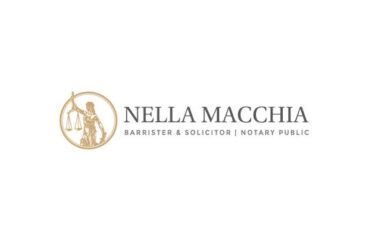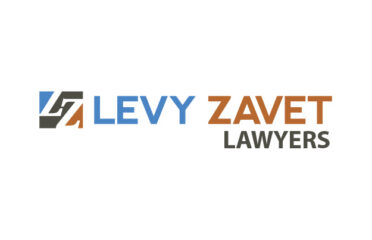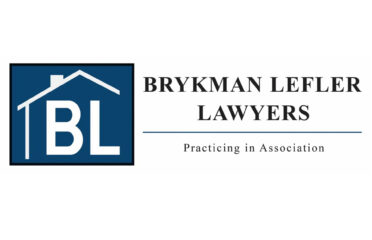What is Wills & Estate Law in Canada?
Over 50% of Canadians die without a valid will, creating unnecessary legal complications for their families. Wills and estate law governs how assets are distributed after death, ensuring your wishes are honored while minimizing taxes and family disputes. This guide explains key concepts in Canadian estate law, from will preparation to probate and estate administration.
1. Essential Components of a Valid Will
A. Legal Requirements
For a will to be valid in Canada, it must:
-
Be in writing (typed or handwritten)
-
Include the testator’s signature
-
Have two witness signatures (not beneficiaries)
-
Demonstrate testamentary capacity
Note: Quebec has unique notarial will requirements under its Civil Code.
B. Key Will Provisions
-
Executor Appointment (manages estate)
-
Guardianship Designations (for minor children)
-
Asset Distribution (specific and residual gifts)
-
Contingency Plans (alternate beneficiaries)
2023 Stat: 32% of wills are challenged due to unclear wording
2. Types of Wills in Canada
| Will Type | Description | Best For |
|---|---|---|
| Formal Will | Witnessed, detailed document | Most estates |
| Holograph Will | Handwritten, unwitnessed | Emergency situations |
| Notarial Will | Quebec-specific, notarized | Quebec residents |
| Mutual Wills | Couples’ interdependent wills | Second marriages |
Risk Alert: DIY wills have 60% higher dispute rates than lawyer-drafted wills
3. Probate Process Across Canada
A. What is Probate?
Court confirmation of a will’s validity, required to:
-
Transfer real estate titles
-
Access certain financial accounts
-
Resolve disputes
B. Provincial Probate Fees
| Province | Fee Structure | Average Cost |
|---|---|---|
| Ontario | $5/$15 per $1,000 >$50K | $1,500-$5,000 |
| British Columbia | Flat $200 + $14.60/$1K | $800-$3,500 |
| Alberta | Flat $525 | $525 |
| Quebec | Not required for notarial wills | $0-$1,000 |
Estate Tip: Joint ownership and beneficiary designations can avoid probate
4. Estate Administration Responsibilities
Executor Duties Timeline
-
Immediate (First 30 days):
-
Secure assets
-
Arrange funeral
-
Notify institutions
-
-
Short-Term (1-6 months):
-
Pay debts/taxes
-
Apply for probate
-
Notify beneficiaries
-
-
Long-Term (6-24 months):
-
Distribute assets
-
File final tax returns
-
Close estate accounts
-
Liability Risk: 15% of executors face personal liability for errors
5. Tax Considerations in Estate Planning
A. Deemed Disposition Rules
-
Capital gains tax triggered on most assets at death
-
Principal Residence Exemption applies
-
2024 Rates: 50% of gain taxed at marginal rates
B. Tax Reduction Strategies
-
Spousal Rollover (defer taxes until spouse’s death)
-
Charitable Bequests (100% tax credit)
-
Life Insurance (tax-free payout)
-
Alter Ego Trusts (Ontario/BC residents)
Case Example: $2M estate saved $300K+ with proper tax planning
6. Challenging a Will: Grounds & Process
A. Common Challenge Reasons
-
Lack of Capacity (35% of cases)
-
Undue Influence (28%)
-
Improper Execution (20%)
-
Dependents’ Relief Claims (17%)
B. Limitation Periods
-
Ontario: 6 months from probate
-
BC: 180 days from grant
-
Alberta: 6 months from grant
Success Rate: Only 22% of challenges fully overturn wills
7. Digital Assets in Estate Planning
A. What Counts as Digital Assets?
-
Social media accounts
-
Cryptocurrency wallets
-
Cloud storage
-
Loyalty points
B. Access Solutions
-
Password Managers with emergency access
-
Digital Executor appointment
-
Platform-Specific Tools (Facebook Legacy Contact)
Legal Gap: Only 3 provinces have digital asset legislation (BC, ON, SK)
8. Provincial Differences in Estate Law
A. Quebec (Civil Law System)
-
Forced heirship rules
-
Notarial wills standard
-
No common-law spouse rights
B. British Columbia
-
Wills can include digital assets
-
Spousal share of household contents
-
Unique estate litigation procedures
C. Ontario
-
Highest probate fees
-
Strict execution formalities
-
Extensive case law on capacity
9. Recent Legal Developments (2024)
A. Electronic Wills
-
Ontario pilot program extended
-
BC considering permanent adoption
B. Estate Administration Modernization
-
Online probate applications expanding
-
Electronic death notifications
C. Cryptoasset Regulations
-
New CRA reporting requirements
-
Exchange access protocols
10. Case Study: McLean v. McLean (2023 ONCA)
This ruling:
-
Clarified testamentary capacity standards
-
Upheld holograph will with minor defects
-
Emphasized substance over form
11. Estate Planning Checklist
-
Inventory Assets (include digital)
-
Choose Executor (plus alternate)
-
Plan Guardianship (if applicable)
-
Consider Tax Strategies
-
Store Documents Safely
-
Review Every 3-5 Years
12. The Future of Estate Law
Emerging trends:
-
AI-assisted will drafting tools
-
Blockchain wills (immutable verification)
-
Climate-conscious estates (green burials)
-
Pet inheritance trusts
Conclusion
Proper estate planning in Canada requires understanding both federal tax principles and provincial legal nuances. With an aging population and increasingly complex asset types, having a professionally prepared will and complementary estate plan has never been more crucial. Recent legal changes are modernizing estate administration while maintaining core protections for testators and beneficiaries alike.
As the Supreme Court noted in Tataryn v. Tataryn, “Wills represent a testator’s last opportunity to provide for those they cared about in life.” By addressing estate planning proactively, Canadians can ensure their legacy is preserved according to their wishes while minimizing family conflict and tax burdens. Whether your estate is modest or complex, investing in proper legal guidance today can prevent costly disputes and administrative hurdles for your loved ones tomorrow.






















